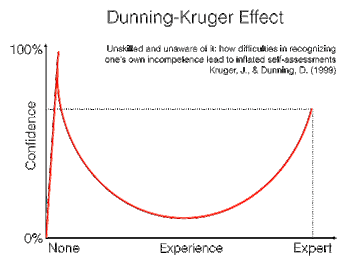Some Influential Discoveries / Quotes
Here are some inventions that I quite like. They're not in any particular order. Oh, and the reason this page is here is because I was learning how to compile lists and arrange typesetting using HTML and this was an early attempt...
- Asimov's three laws of robotics:
- A robot may not injure a human being, or through inaction, allow a human being to come to harm.
- A robot must obey the orders given it by human beings except where such orders would conflict with the First Law.
- A robot must protect it's own existence as long as such protection does not conflict with the First or Second Law.
- Heisenberg's uncertainty principle: The taking of measurements interacts with the observed object thus causing it to be revealed not as itself but as a function of the measurement.
- Napoleon: History is a lie universally agreed upon.
- Einstein's energy mass conversion principle: E = mc2
- Faster Than Light travel?: Fold space-time to instantaneously move from one part of the universe to another (maybe millions of light years away).
Thus you can theoretically travel faster than the speed of light, by travelling around the 'light barrier' rather than through it.
The problem is that the energy required to create a wormhole needs to be negative energy (not the positive energy that we experience in our universe) and the mass required to create a related phenomenon such as a blackhole is equal to the mass of 30 of ours suns!....so overall folding space-time is very energy prohibitive.
- Newton's laws of mass and effect:
- An object continues in a state of rest/motion in a straight line unless acted upon by a force.
- Change of motion is proportional to the magnitude of the force and is made in the direction of a straight line in which that force acts.
- Every action has an equal and opposite reaction.
- SEOmov's Quality of Design curve: Group intelligence is multiplicative when idiots are involved - combining a half-wit with another half-wit does not result in a full-witted person, it results in a quarter-witted person (½ x ½ = ¼). Combining a full-witted individual with a half-wit still only yields a half-wit (1 x ½ = ½). The more of these "wrong kinds of people" you have involved in any process, the worse things get.
- The Dunning-Kruger effect: For a given skill, incompetent people will:
- fail to recognise their own lack of skill;
- fail to recognise genuine skill in others;
- fail to recognise the extremity of their inadequacy;
- recognise and acknowledge their own previous lack of skill only if they are exposed to training for that skill.

A simple summary would be to look at the graph above. It shows that when someone starts learning about a topic, they quickly come to believe they are experts in the field and there is "nothing to it" (the initial peak on the left) despite not having much knowledge. Then, when learning more and more about the subject, one comes to realise that it's more difficult than they initially thought (the downwards dip) and become more realistic in their expectations and beliefs. Finally as they learn even more and slowly become an actual expert, confidence grows again (the upwards rise on the right) due to the fact they now have good solid knowledge.
Finally, here is an interesting mathematical idea (x is a +ve integer):
6x-18 = 4x-12
factorise 3(2x-6) = 2(2x-6)
÷ by 2x-6 3 = 2
...eh?
Re-discover my Links page ?
2nd June 1998
